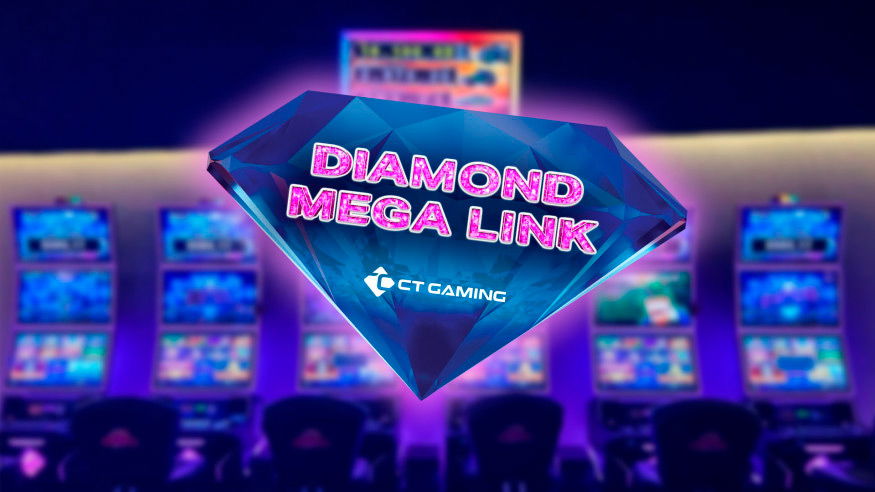Spectrum Gaming Group unveils list of top 10 US gambling issues to watch out for in 2025

Spectrum Gaming Group has unveiled the top 10 issues it believes will drive the US gaming industry's agenda next year. The gaming consulting firm, which has published the annual U.S. Top 10 Trends in Gaming list since 2005, lists trends and issues ranging from sweepstakes to iGaming, and markets from New York to Texas.
Pennsylvania-based Spectrum Gaming, which bills itself as a nonpartisan consultancy specializing in the economics, regulation, and policy of legalized gambling, says its list covers "the most significant issues that regulators, operators, and suppliers need to consider as they make plans for the coming year."
The consulting firm has conducted research for gaming regulators and lawmakers in 40 states. It has also been commissioned by leading gaming companies to carry out studies, including Las Vegas Sands, MGM Resorts, Caesars Entertainment, Boyd Gaming, and Penn Entertainment.
Released on Tuesday, the latest iteration of its year list "represents the issues that will be most impactful to economics and public policy," with the competitive bidding process for the three New York City casino licenses, legalization efforts in Texas, and iGaming expansion among the major topics covered.
Markets to watch out for in 2025
New York City will be one of the major topics of 2025, says Spectrum. After delaying the process this year, New York State intends to award up to three full-scale casino licensees for the New York City metro area.
A key decision will be whether the state essentially converts current racetrack gaming operations Empire City in Yonkers (MGM Resorts) and Resorts World NYC in Queens (Genting) into full casinos while also selecting a third winner, or awards the three licenses to other applicants.
Sands, Caesars, Hard Rock, Mohegan, Wynn Resorts, and Bally’s are among the companies spending millions of dollars in hopes of securing one of NYC’s casino licenses. New York City is considered the greatest gaming market opportunity for commercial casino operators in decades.
A second state has also made Spectrum's list – Texas. As Texas' biennial legislative session resumes in January, there will be the usual hope for enabling casino legislation, led by Las Vegas Sands – as well as a push for sports betting in this state highly prized by the gaming industry. But it appears to be another uphill battle for proponents, the firm notes, and the legalization push may have strengthened efforts by opponents.
The slim odds of passage are however unlikely to deter proponents, led by Dr. Miriam Adelson, the largest shareholder of Sands. The gaming empire founded by her late husband continues to pour millions of dollars into lobbying efforts to convince lawmakers to end the state’s casino ban.
Movement in online gaming
Whether legal or illegal or somewhere in between, states and the mainstream gaming industry alike will continue to watch digital sweepstakes gaming in 2025, says Spectrum. They are likely to closely analyze how this upstart form of gaming develops to determine whether it is a threat or an opportunity, "and potentially a catalyst for states to legalize traditional iGaming."
The issue of sweepstakes gaming is closely tied to that of iGaming, the fourth trend Spectrum projects for 2025. The firm believes there is "little movement" for the vertical to be approved in new jurisdictions next year, while discussions surrounding the potential cannibalization of the retail sector will continue.
"There are emerging indications that the continuing growth of iGaming revenues in some of the seven current states may be slightly impacting retail gaming revenues, as seen in flattening year-over-year growth," the firm said. "In New Jersey, iGaming revenues in October surpassed retail casino revenues – and the gap is narrowing in other iGaming states. This deserves careful analysis in 2025."
Non-slot gaming machines to expand?
Spectrum believes that, where casino slot machines are not permitted, both states and pari-mutuel and gaming industries will continue to advocate for the legalization or expansion of historical horse racing.
Kentucky, New Hampshire, Virginia and Wyoming have demonstrated the potential of HHR machines, which have greatly narrowed the performance gap between them and slots. This trend could continue into next year, the report says.
A second controversial type of machine is also likely to draw attention in 2025: so-called "skill” machines. Various states face an increase in these devices, which the regulated gaming industry views as a form of unauthorized, unregulated gambling.
While the issue is being debated, the number of locations – as well as the number of machines – continues to increase. Proponents of these games are endeavoring to seek licensure and to be taxed, while opponents say they cannibalize existing forms of legal gaming and do not meet the requisite standards for licensure.
Gaming policy and responsible gambling
For Spectrum, the emerging generations of elected and appointed officials are modifying and establishing gaming policies that are "increasingly at odds" with past practices.
An example of this can be found in states that are considering authorizing new forms of gaming (as those identified above in this list) without regard to maintaining standards of licensure or focusing on the integrity of licensees. "This trend raises the risk of reducing public confidence in gaming," says the firm.
As new forms of gaming push for legalization, operators and regulators alike are set to continue trying to determine how best to prevent gambling problems and get ahead of negative trends in a player’s activities. However, Spectrum warns this will require data sharing and new legislation and regulations.
The next year is thus likely to see this issue and how far to go with it as a topic that jurisdictions will grapple with, "especially those that typically lead in player protections and health."
Movement in sports betting and other verticals
Having expanded wider and faster than any other form of legal gambling in the country’s history, sports betting operators will continue to look for new products, bet types, and promotions in 2025 while also keeping an eye on potential state gaming tax hikes as their federal pandemic aid runs out.
The push for innovation comes amid a merging of verticals, also likely to continue in 2025, with operators employing a single, cross-platform strategy as they seek new ways to leverage technology while gaining greater access to player databases.
Examples include the acquisition of Jackpocket by DraftKings, the acquisition of NeoGames by Aristocrat, and distributed gaming operator Accel Entertainment moving into casino operations, which followed moves by casino operators Boyd and Penn Entertainment into route operations. More such acquisitions across verticals can be expected in 2025.
















































